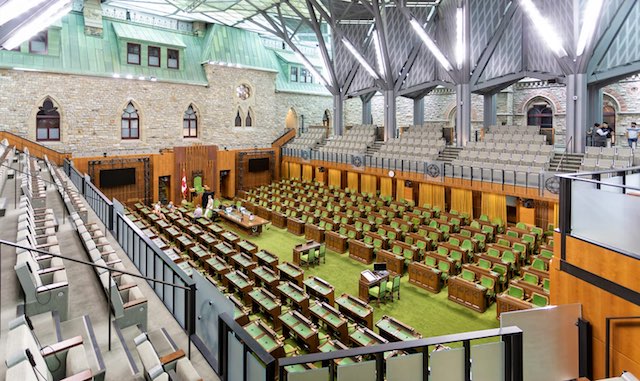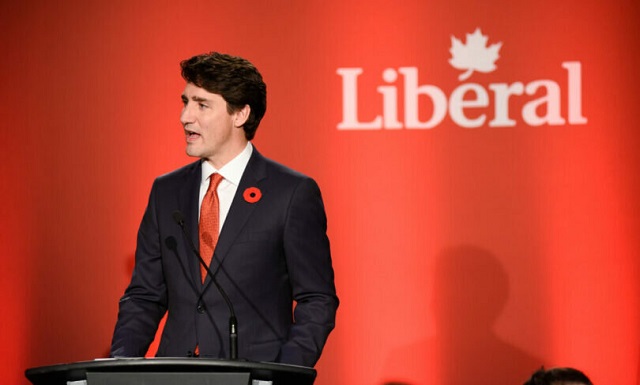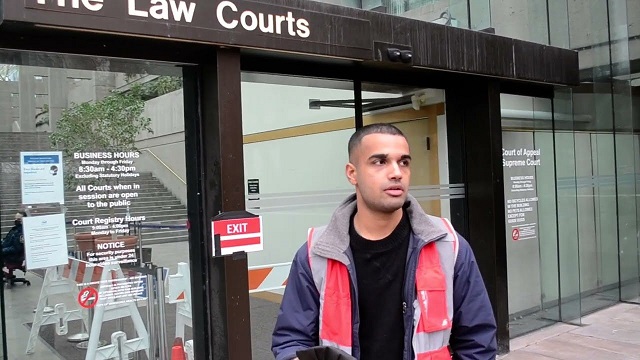National
Poll shows 4 in 5 Canadians oppose MP pay raise

From the Canadian Taxpayers Federation
Author: Franco Terrazzano
The Canadian Taxpayers Federation released Leger polling today showing 80 per cent of Canadians oppose the member of Parliament pay raise on April 1.
“The poll results are crystal clear: Canadians don’t think MPs deserve another pay raise,” said Franco Terrazzano, CTF Federal Director. “It looks like the only Canadians who strongly support an MP pay raise are probably the politicians themselves.”
The Leger poll asked Canadians if they support or oppose the upcoming MP pay raise. Results of the poll show (totals may be slightly off due to rounding):
- 62 per cent strongly oppose
- 18 per cent somewhat oppose
- 12 per cent somewhat support
- 2 per cent strongly support
- 7 per cent don’t know
MPs give themselves pay raises each year on April 1, based on the average annual increase in union contracts with corporations with 500 or more employees.
While final pay numbers have not been released, contract data published by the government of Canada shows the average annual increase in the private sector was 4.2 per cent in 2023. Using this data, the CTF estimates this year’s pay raise will amount to an extra $8,100 for backbench MPs, $11,900 for ministers and $16,200 for Prime Minister Justin Trudeau.
After this year’s pay raise, backbench MPs will receive a $202,700 annual salary, according to CTF estimates. A minister will collect $299,300, while Trudeau will take home $405,400.
The federal government stopped automatic MP pay hikes from 2010 to 2013 in response to the 2008-09 recession.
“We haven’t heard a single MP from any party forcefully try to stop the pay raise,” Terrazzano said. “On the very same day politicians take more money out of Canadians’ wallets with tax hikes, they’ll be stuffing more money into their own and that’s wrong.
“All MPs should speak out against the tax hikes and politician pay raise.”
| Position |
Pre-pandemic salary |
Current salary |
Salary Apr. 1 2024 |
Total increase since beginning of 2020 |
| MP |
$178,900 |
$194,600 |
$202,700 |
$23,800 |
| Minister |
$264,400 |
$287,400 |
$299,300 |
$34,900 |
| Prime Minister |
$357,800 |
$389,200 |
$405,400 |
$47,600 |
COVID-19
Trudeau gov’t has paid out over $500k to employees denied COVID vaccine mandate exemptions

From LifeSiteNews
The Department of Health paid $177,991, the Department of Foreign affairs paid $88,223, the Correctional Service of Canada paid $65,694, and Statistics Canada paid $33,240
Federal managers have paid out over $500,000 in settlements to employees that were suspended under the Trudeau government’s COVID vaccine mandate.
According to information obtained April 24 by Blacklock’s Reporter, records have revealed that Canadian federal managers have paid a total of $509,746 in damages and compensation to employees who were denied vaccine mandate exemptions.
“What are the total expenditures on compensation, severance packages and settlements to employees who were impacted by the government’s requirement during the COVID-19 pandemic that federal public servants provide proof of vaccination?” Conservative MP Ted Falk had questioned.
According to the official numbers released by Blacklock’s, the Department of Health paid $177,991, the Department of Foreign affairs paid $88,223, the Correctional Service of Canada paid $65,694, and Statistics Canada paid $33,240.
The Department of National Defence further revealed that it compensated three employees with “damages under the Canadian Human Rights Act on grounds of discrimination based on religion.”
Beginning November 2021, Prime Minister Justin Trudeau’s government mandated that a total of 275,983 employees from the RCMP, military and main federal departments provide proof of vaccination as a condition of employment.
Those who failed to do so risked dismissal or suspension without pay. While there were provisions for medical and religious exemptions, these were rarely granted. According to internal information, at the time of the mandates 95 percent of employees had already received the COVID vaccine.
When the federal mandate was lifted in June 2022, 2,560 employees had been suspended without pay for refusing to show proof of vaccination.
Indeed, implementing the vaccine mandate for federal employees has proved costly for Canadian taxpayers as Trudeau budgeted $198 million to enforce the COVID jabs on federal employees.
Conservative MPs questioned why the cost of the mandate was so high and pressed for details as to what the funds were used for.
“Treasury Board officials told us it was for rapid testing purchases and distribution,” Conservative MP Kelly McCauley (Edmonton West) told the House of Commons in 2021.
“The Treasury Board website shows there are about 3,400 unvaccinated employees,” he added. “That works out to about $24,000 per employee for rapid testing.”
Additionally, the Trudeau government will likely have to pay out even more former employees due to ongoing lawsuits over the mandates.
In October, LifeSiteNews reported on how over 700 vaccine-free Canadians negatively affected by federal COVID jab dictates have banded together to file a multimillion-dollar class-action lawsuit against the Trudeau government.
Similarly, Canadian taxpayers have already paid over $6 million via Canada’s Vaccine Injury Program (VISP) to those injured by COVID injections, with some 2,000 claims remaining to be settled.
National
Anger towards Trudeau government reaches new high among Canadians: poll

From LifeSiteNews
A recent Nanos research survey found that ‘Pessimism and anger remain the top emotions Canadians say best describe their views of the federal government in Ottawa.’
Canadians’ anger towards Prime Minister Justin Trudeau and his Liberal government has reached a record high, according to a new poll.
According to a national survey published by Nanos Research this month, 31% of Canadians feel anger and pessimism towards the Trudeau government, which marks an all-time low in satisfaction for government leadership.
“Which of the following feelings best describes your views of the federal government in Ottawa?” the poll questioned.
In addition to the 31% feeling angry and pessimistic respectively, 11% feel uninterested, while only 1% and 10% feel satisfaction and optimism, respectively. 6% were unsure of their feelings towards the Trudeau government.
“Feelings of anger toward the federal government have increased or held steady in every region, with the largest increases among residents of Quebec (December: 12%; March: 24%) and Atlantic Canada (December: 21%; March: 38%). Pessimism and anger remain the top emotions Canadians say best describe their views of the federal government in Ottawa,” the research found.
In recent months, Trudeau’s popularity has plummeted, with polls projecting a massive Conservative victory in the upcoming election.
Trudeau’s popularity has been falling and his government has been embroiled in scandal after scandal, one of the latest being a federal court ruling that the prime minister’s use of the Emergencies Act to end the 2022 Freedom Convoy was “not justified.”
Even top Liberal party stalwarts have called for him to resign.
Indeed, Canadians anger and dissatisfaction with Trudeau has become a topic of conversation on many social media platforms, with Canadians detailing how the Trudeau government has made their life less affordable.
Numerous videos are being uploaded to social media by Canadians explaining that they struggling to make ends meet amid the rising cost of living and Trudeau’s ever-increasing carbon tax, while many immigrants are telling others not to come to Canada.
-

 COVID-1911 hours ago
COVID-1911 hours agoPfizer reportedly withheld presence of cancer-linked DNA in COVID jabs from FDA, Health Canada
-

 Censorship Industrial Complex1 day ago
Censorship Industrial Complex1 day agoJordan Peterson, Canadian lawyer warn of ‘totalitarian’ impact of Trudeau’s ‘Online Harms’ bill
-

 Alberta1 day ago
Alberta1 day agoAlberta rejects unconstitutional cap on plastic production
-

 Alberta1 day ago
Alberta1 day agoAlberta official reveals ‘almost all’ wildfires in province this year have been started by humans
-

 Bruce Dowbiggin1 day ago
Bruce Dowbiggin1 day agoCome For The Graduate Studies, Stay For The Revolution
-

 Business1 day ago
Business1 day agoTaxpayers criticize Trudeau and Ford for Honda deal
-

 Business2 days ago
Business2 days agoDon’t be fooled by high-speed rail
-

 Alberta1 day ago
Alberta1 day agoPolitical parties will be part of municipal elections in Edmonton and Calgary pilot projects







